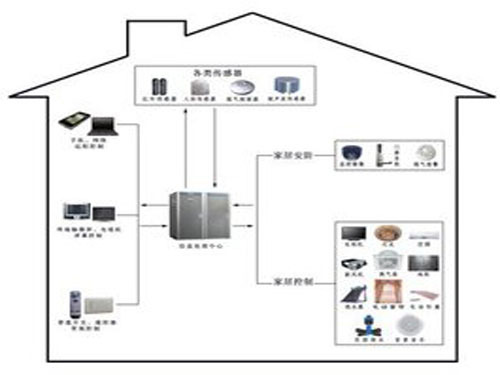
As early as the end of the last century, the concept of smart home was widely discussed in the industry. In recent years, with the development of the Internet, mobile network devices, and wireless communication technologies, the picture of smart homes has become increasingly clear. From the Internet companies continue to launch smart home products such as smart sockets, smart air purifiers, smart locks, etc., to the United States, Gree and Ali, Xiaomi, 360 and other Internet companies to cooperate to force the complete smart home system, this area is It brings more and more expectation to consumers and industries including household appliances, home improvement and real estate.
3D printing, driverless cars, wearable devices... All kinds of new technologies are emerging at an accelerated pace. For those of you who are already familiar with this, it is believed that no one will deny that smart homes will be the trend.
The efforts of international giants have made the prospects in this field even more wonderful. At the International Consumer Electronics Show held in Las Vegas, USA at the beginning of the year, Nest, which has been acquired by Google, released a long list of partners covering new and old electronics manufacturers; Samsung introduced the soon-to-be-purchased SmartThings open platform. In addition, there is a series of smart home product releases. Earlier, Apple released the HomeKit platform.
In this year’s speech, Premier Li Keqiang clearly put forward the “Internet Plus†strategy to promote the integration of mobile internet, cloud computing, big data, and the Internet of Things with modern manufacturing; issues and suggestions regarding the development of the Internet of Things have also been traditionally Representatives of home appliances, the Internet and other industries mentioned. As the "Internet +" and the Internet of Things industry's smart home industry, ushered in a good opportunity to accelerate development.
With the support of a good industry environment and policies, the popularity of smart homes in the consumer market seems to be only a matter of time. But how long does this time take? Will this year become the first year of smart home detonation as some industry insiders say? If smart homes really want to get out of the show and go to users, there are at least the following issues that need to be considered.
First, how to effectively grasp the user's "pain points." "Intelligent and intelligent" has become a point of criticism for many smart home products. The key to enabling users to save money for a product is not how many cool features it can exhibit, but how much practical value it can bring to everyday life. As Google Glass and some smart wearable devices have experienced, in the early days, in addition to vanguard geeks, how many people have purchased or still used them?
Second, how to achieve the interconnection of smart single product. This is the basis for implementing a smart home system. However, the current situation is that the control of smart single products is mostly realized through the mobile phone App dedicated to the product, and the direct transfer of user data between different single products is still unknown. There are huge differences in the technical routes, communication protocols, and access standards used by different companies, and industry standards are still missing. Although the trend of corporate alliance cooperation has appeared, but each is still trying to build itself as the core platform, in an attempt to compete for the right to speak in the industry is also an indisputable fact.
Third, how to cross-industry cooperation cut through the industry. At the beginning of the year, the appearance of Xiaomi’s home decoration was interpreted as an important step for Lei Jun’s smart home layout. Controlling the whole family's smart home system to get users, from the home improvement package up to the upstream, it is a wise choice to provide well-furnished room-to-business cooperation. However, there are two prerequisites. One is to have a decoration team with certain professional qualities; the other is to provide long-lasting user services. After all, the value of smart homes is not a simple one-time installation, but it is based on user data to meet individual needs in the subsequent use process. Needs.
Finally, how to solve privacy and security issues. Although the user privacy issue is a common problem faced by the Internet industry, compared with other products, smart home products that serve every corner of the user's most private space have reason to cause more concern. In foreign countries, there have been cases where hackers use infant surveillance camera loopholes to swear and scare babies. In the movie and TV dramas, the plot to commit crimes through remote control seems not to be an alarmist now. All of these problems require us to effectively circumvent the process of intelligent development, so as to seek advantages and avoid disadvantages, so that intelligence can better serve our lives.
Camping Light,Camping Lamp,Rechargeable Camping Lights,Torch Lanterns,LED Tent Light
Yuyao Flylit Appliance Co.,Ltd , https://www.flylitlight.com